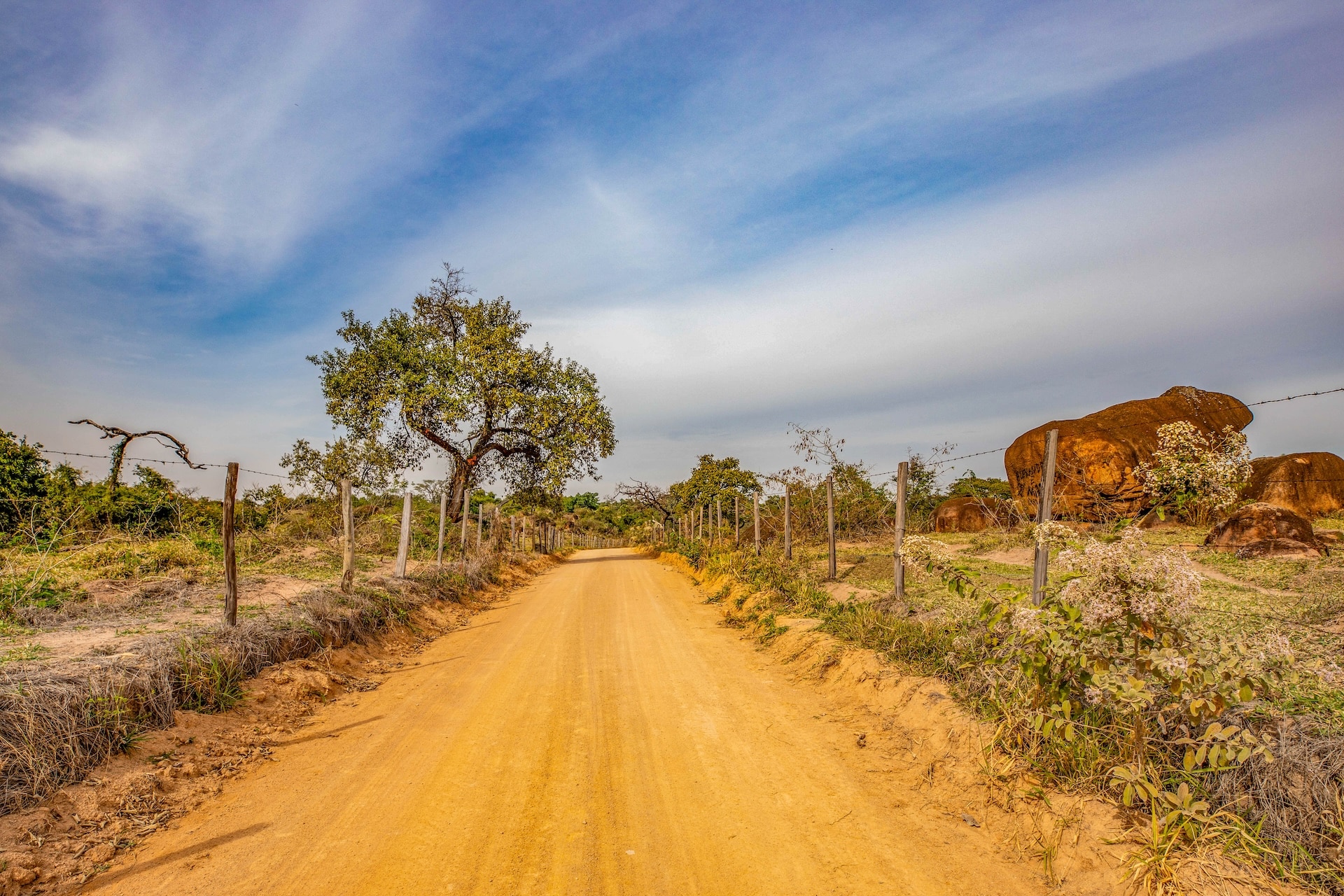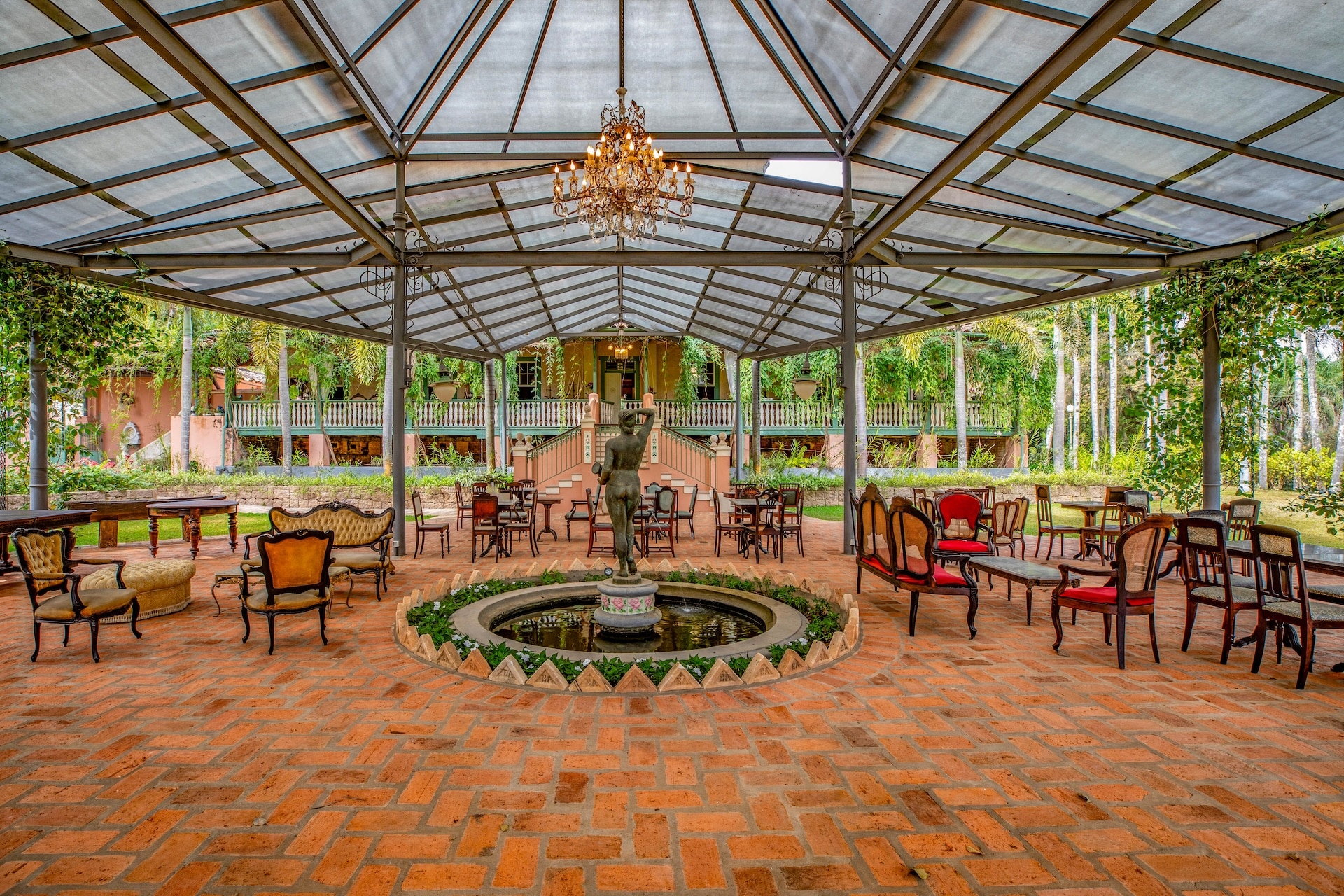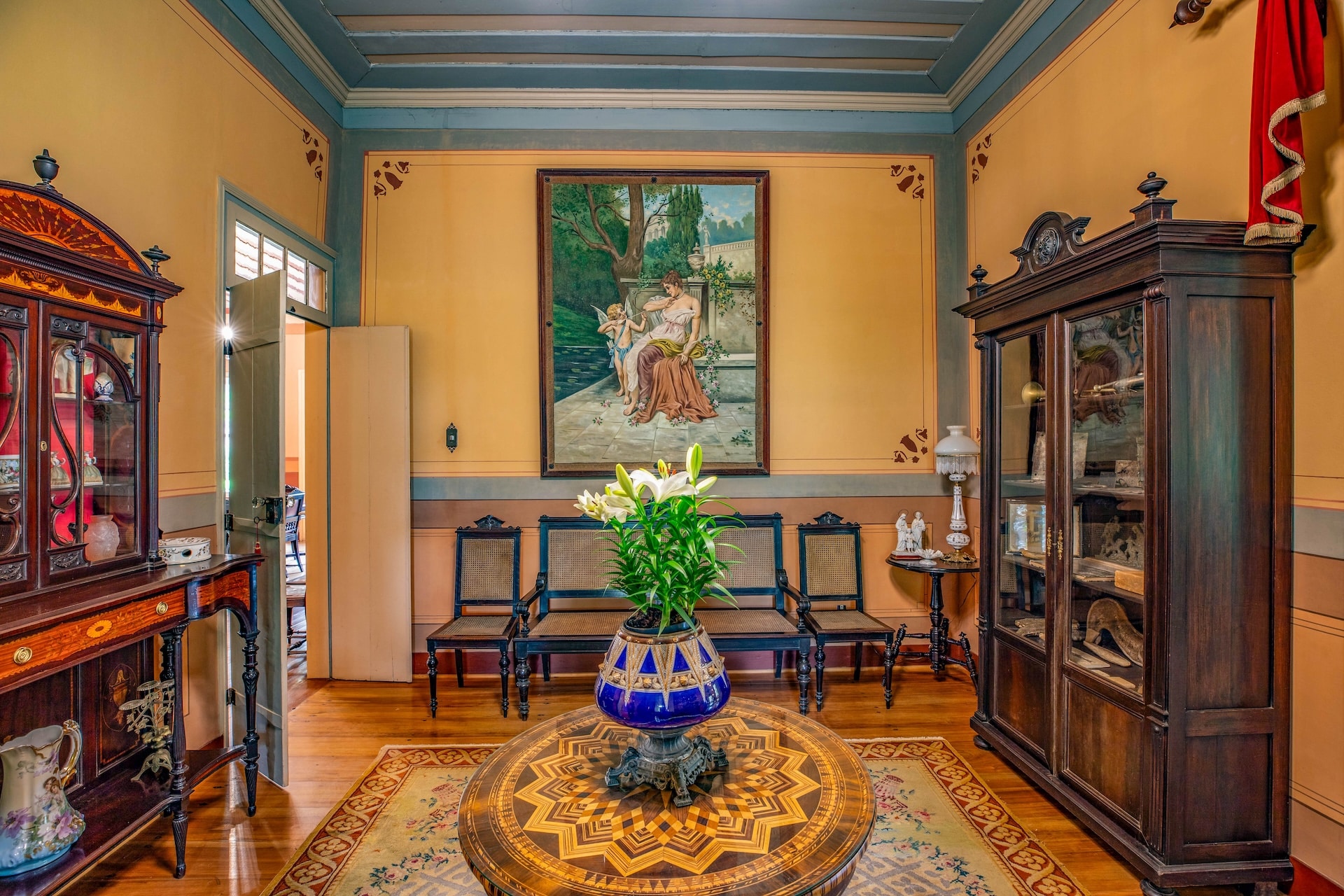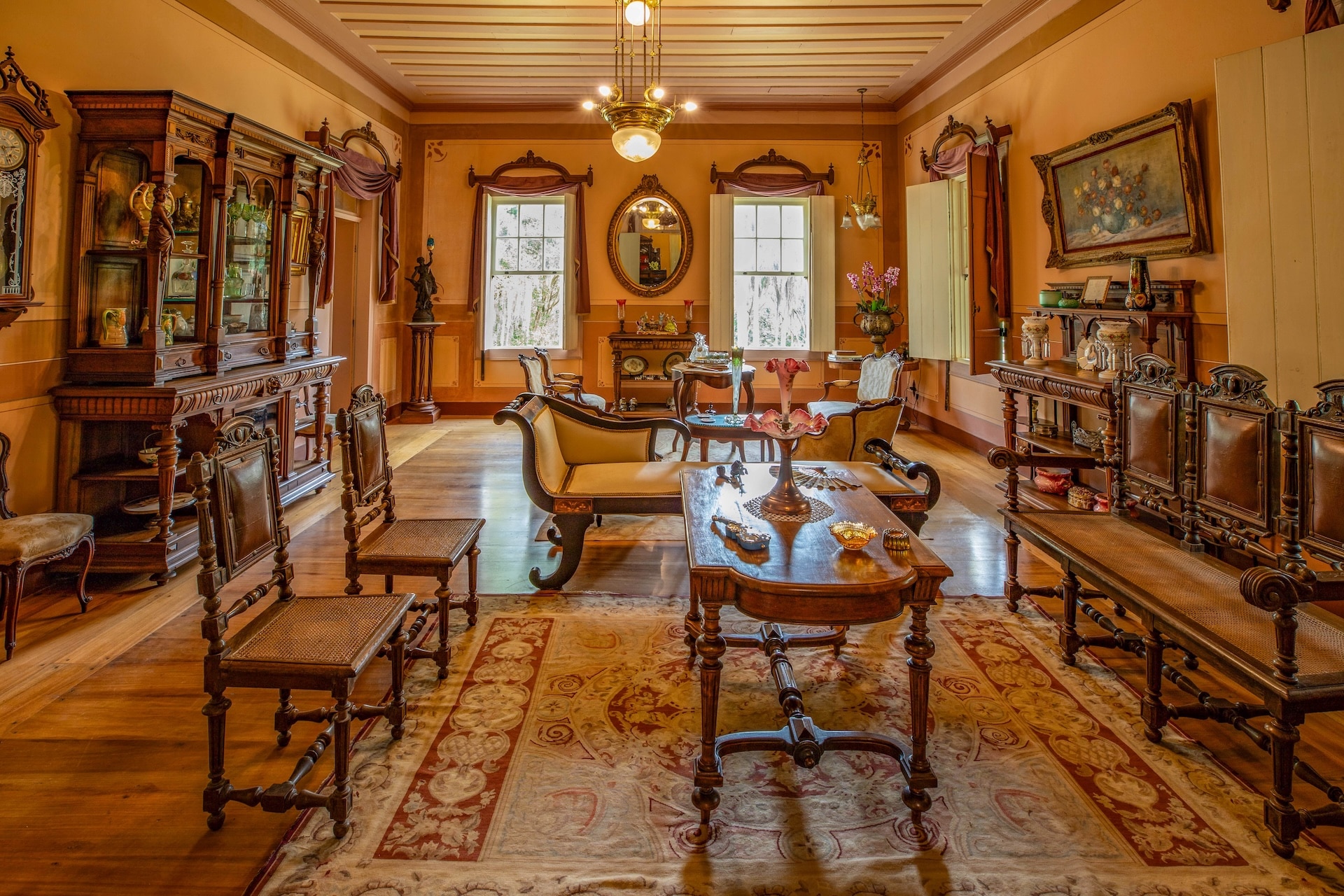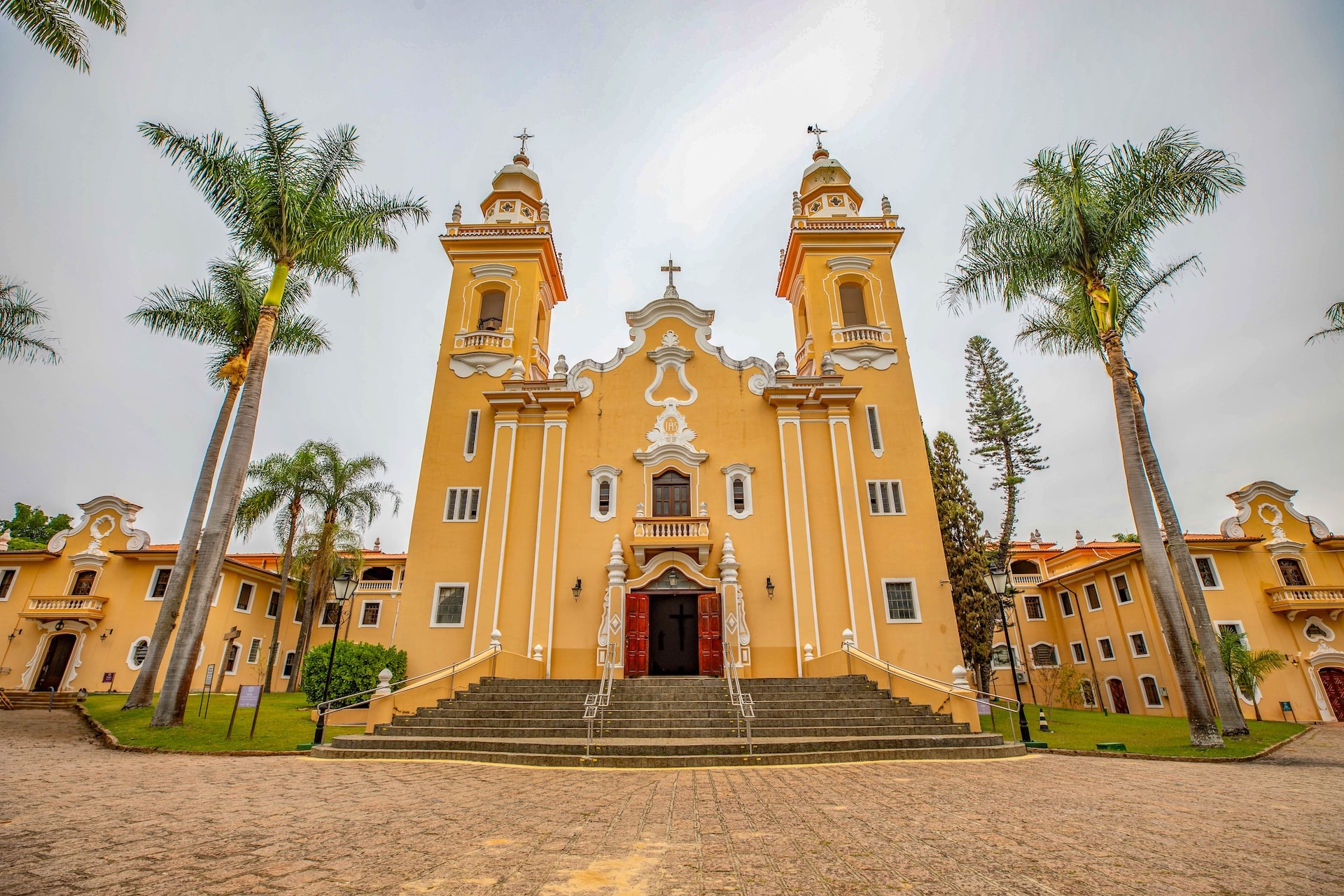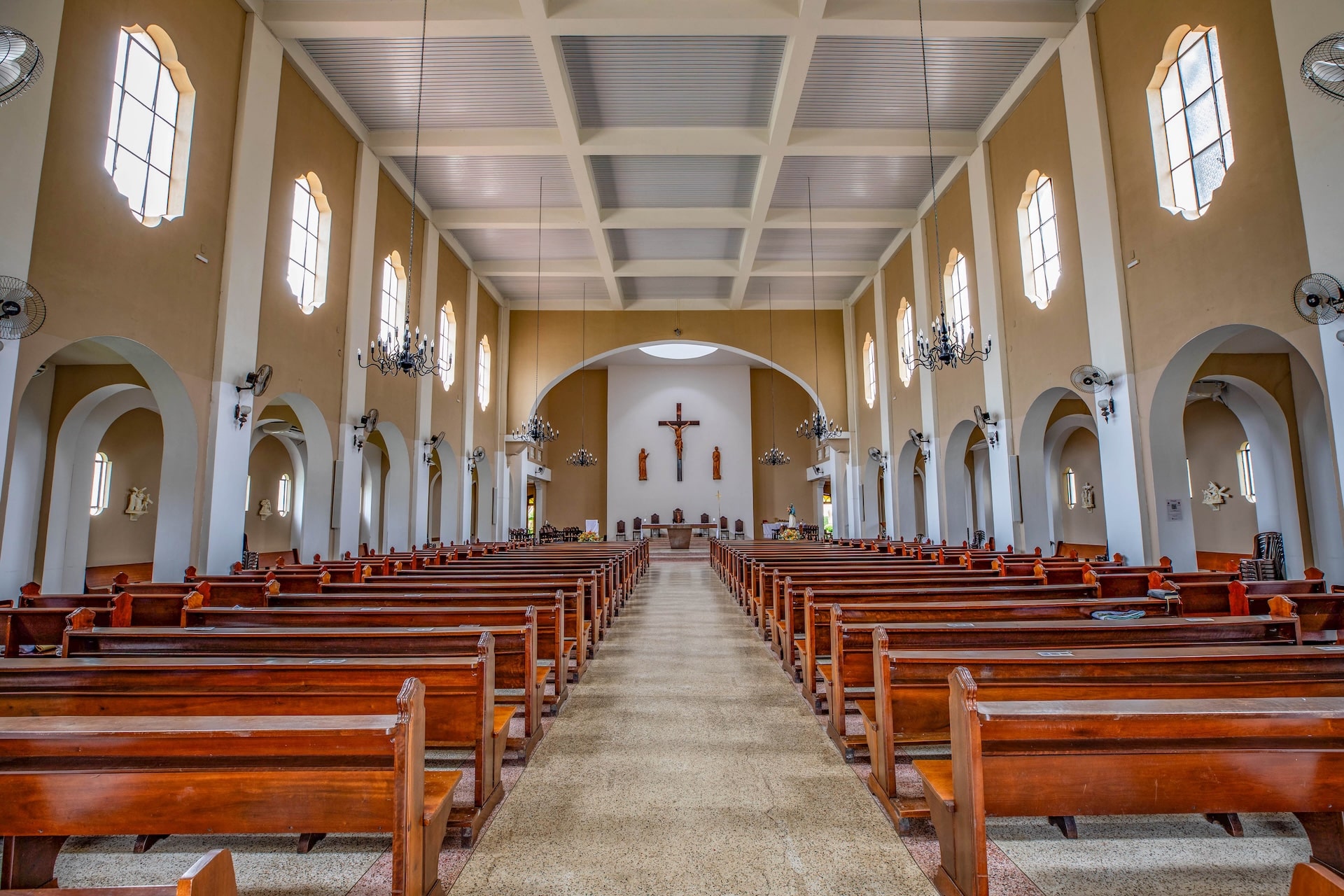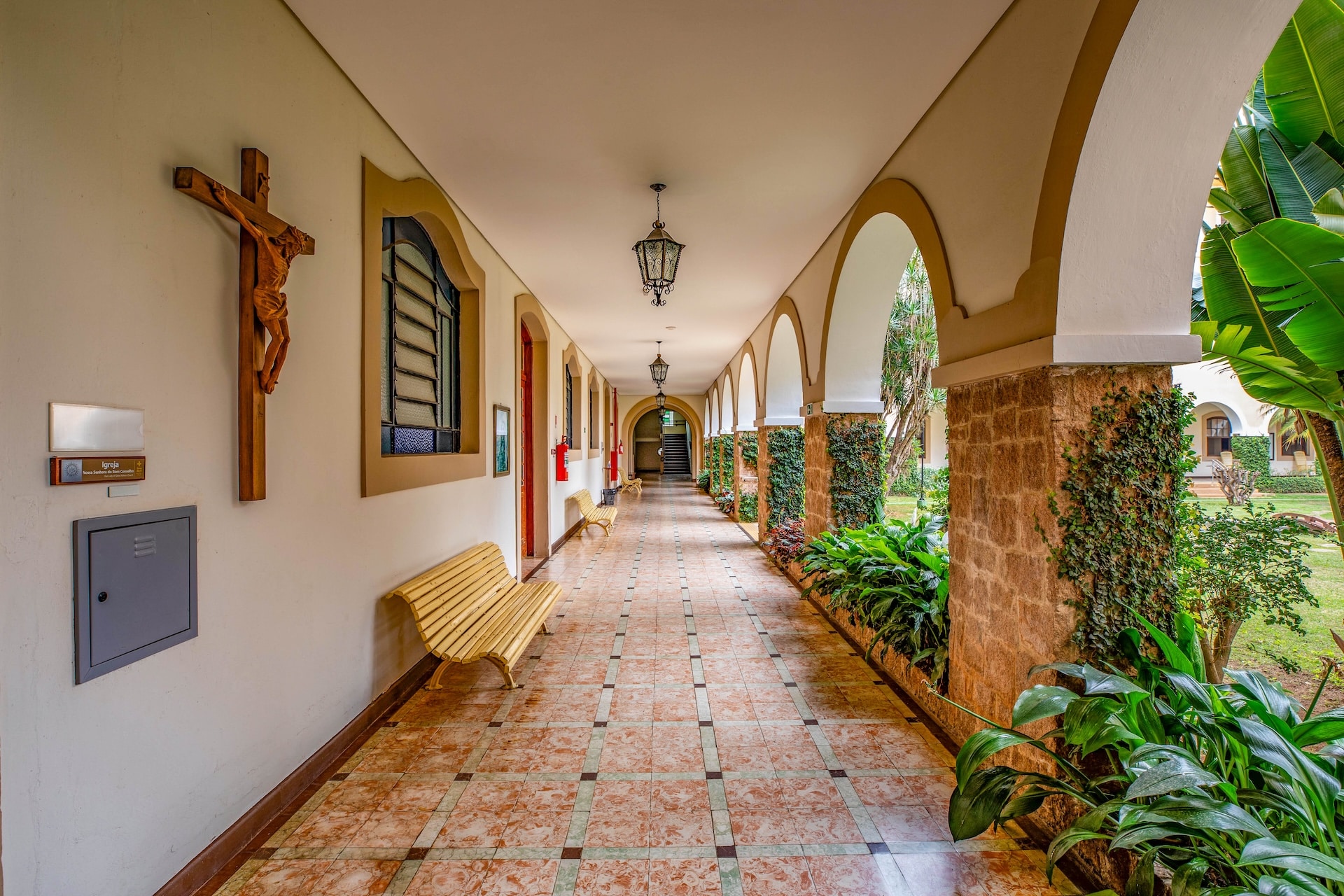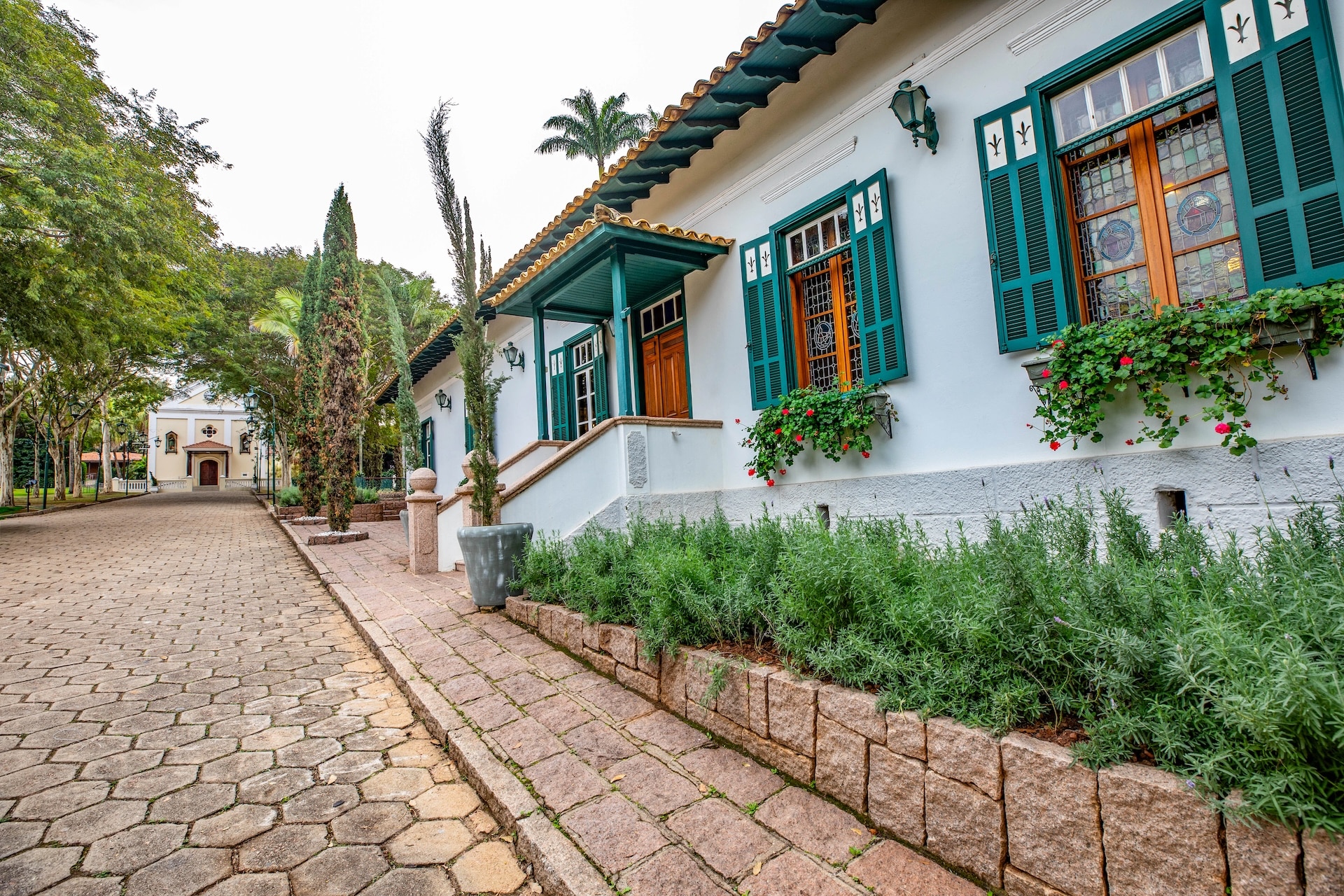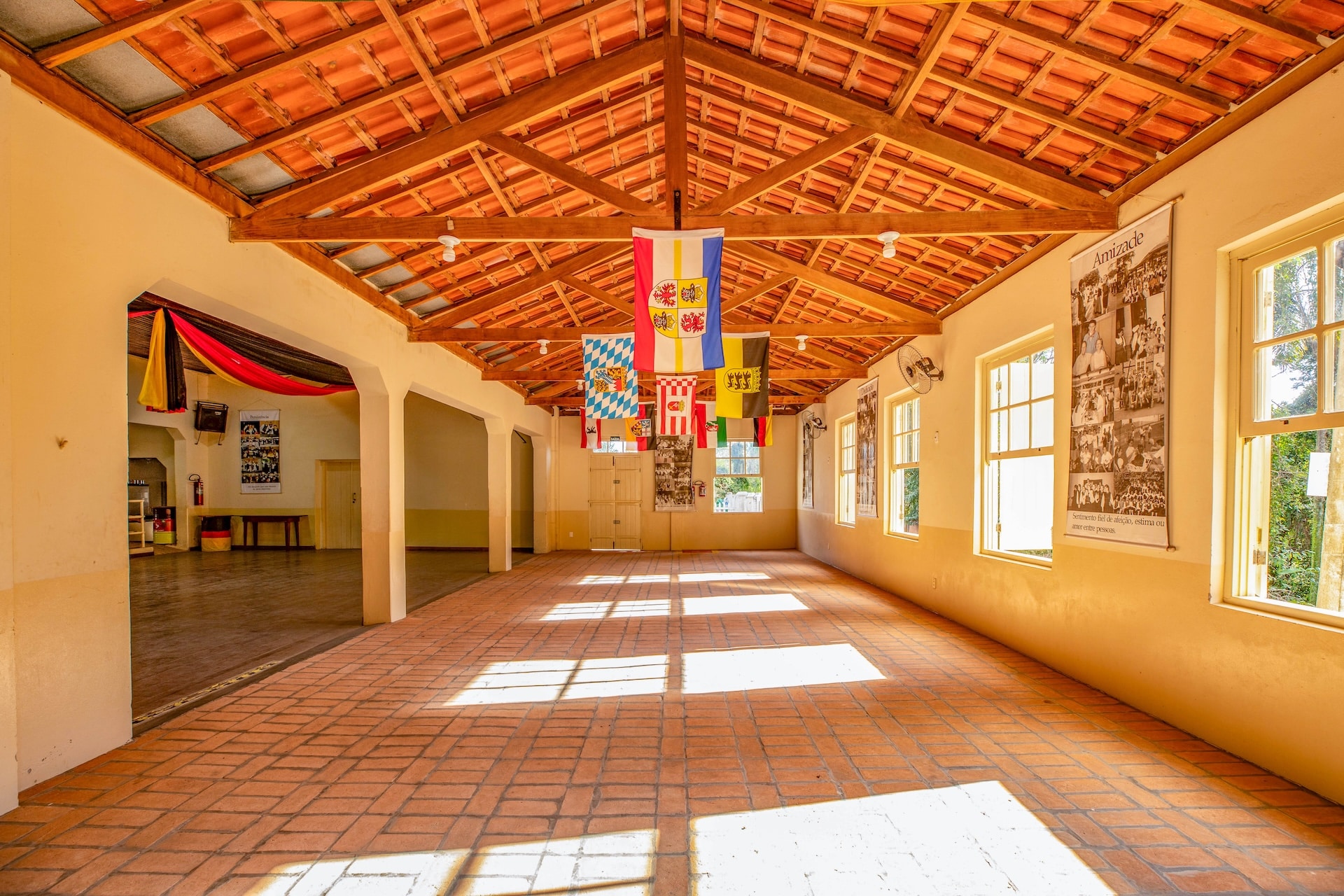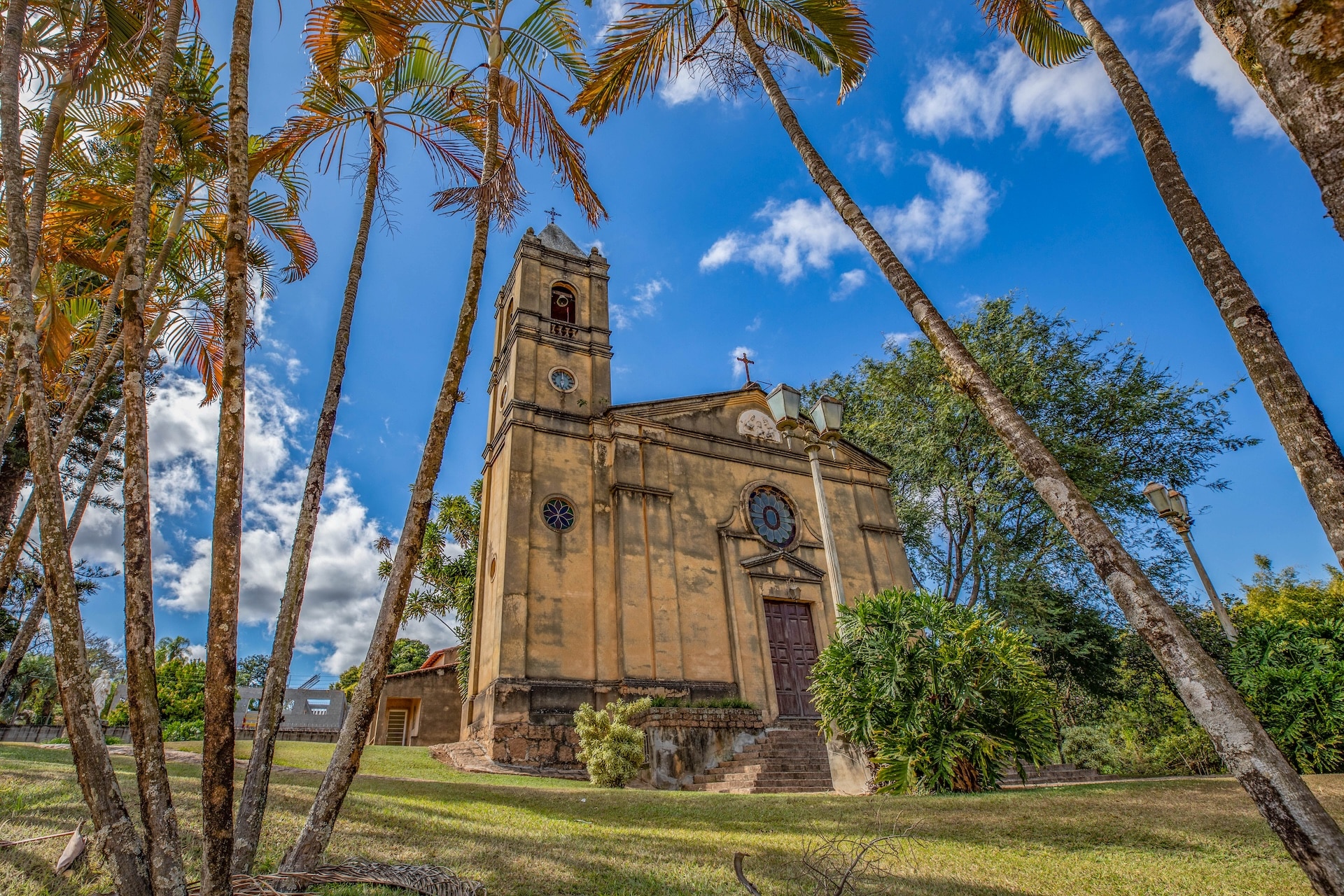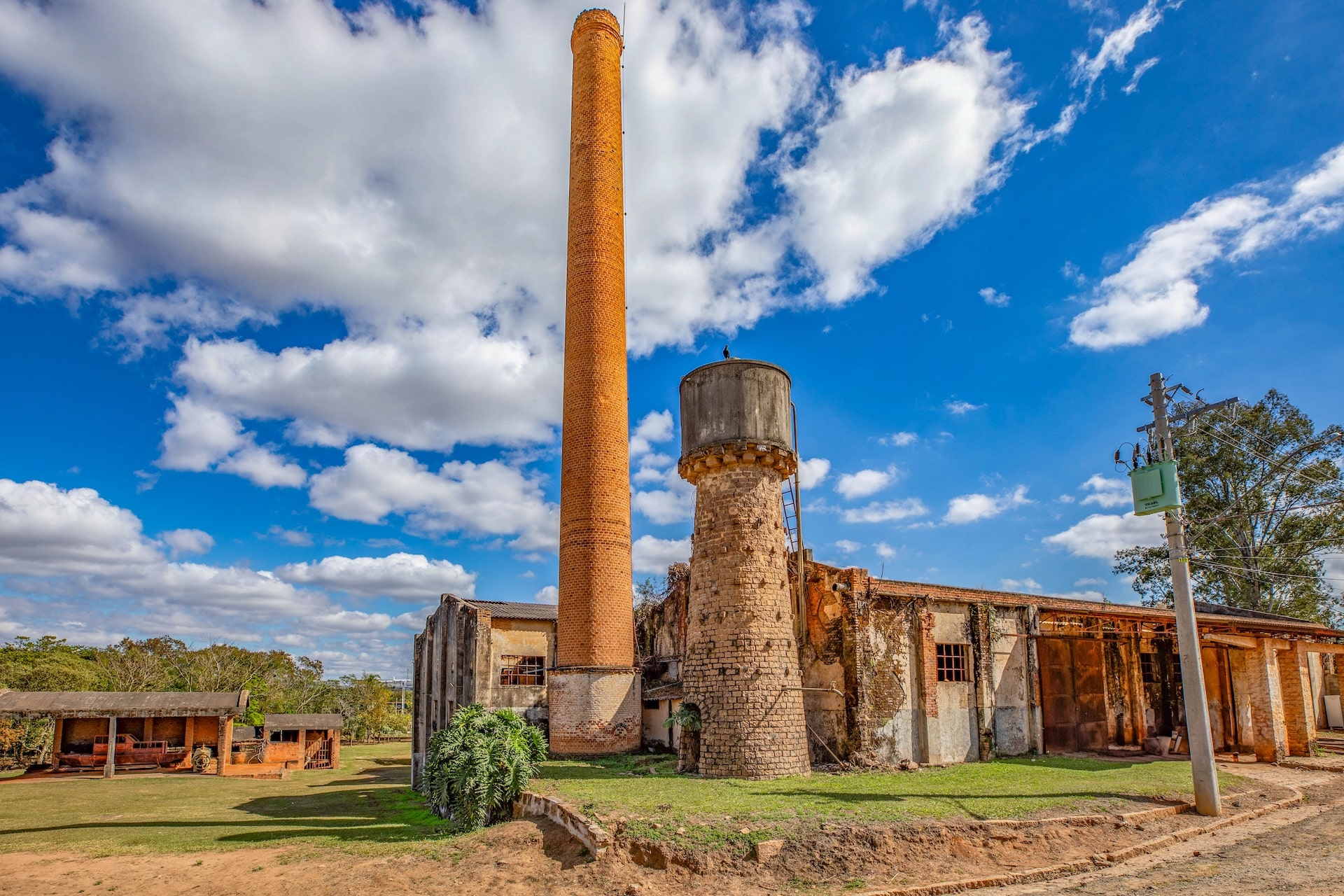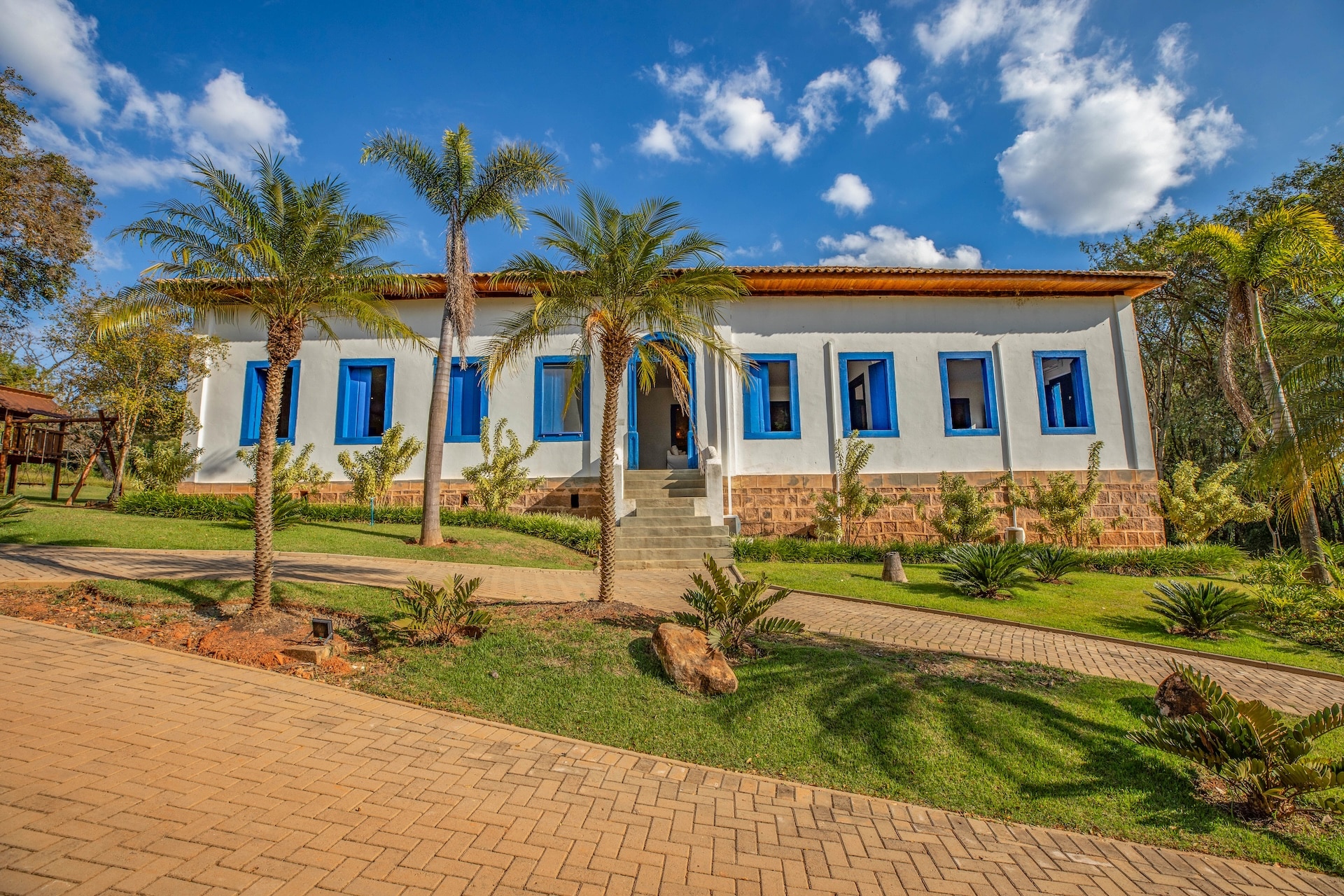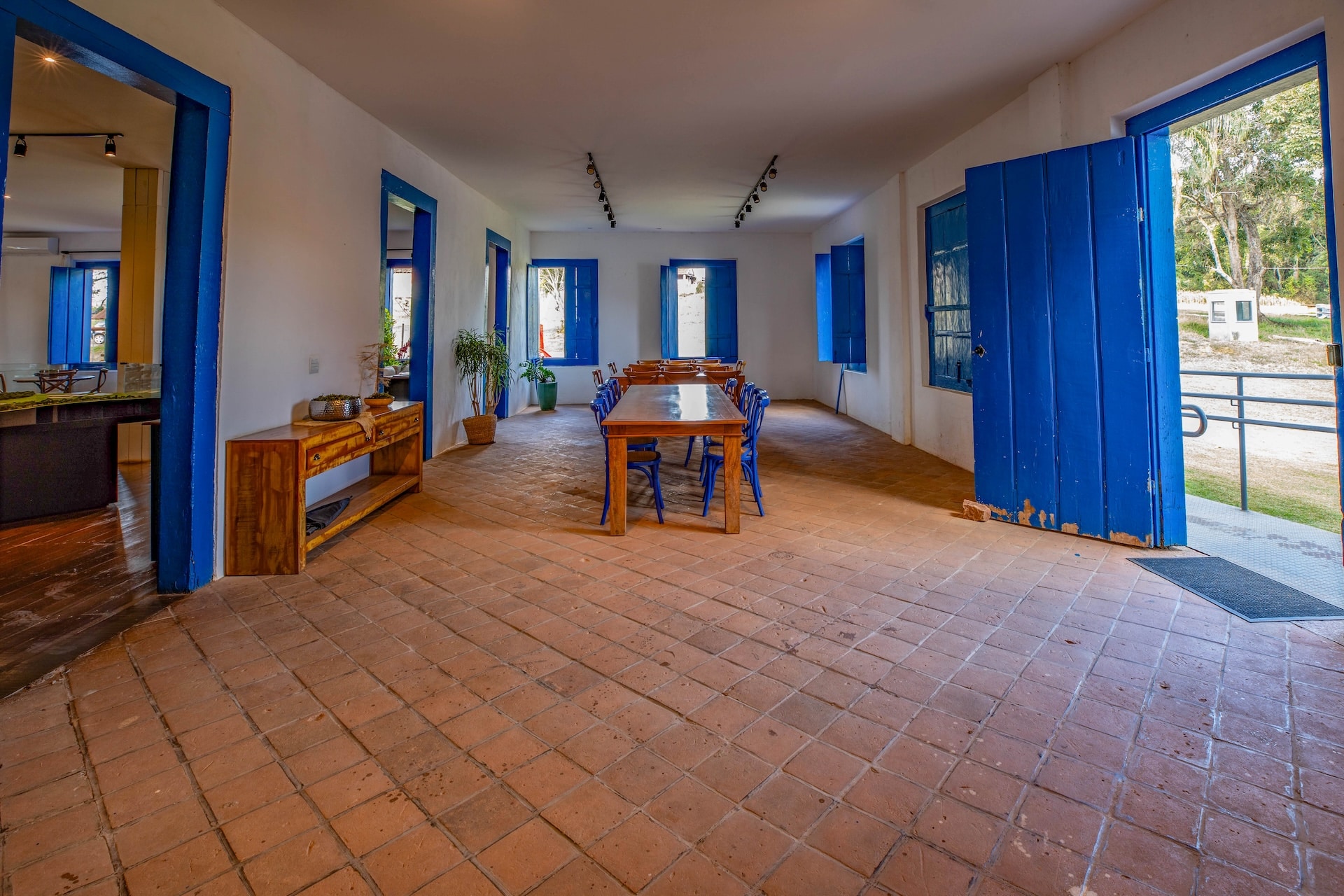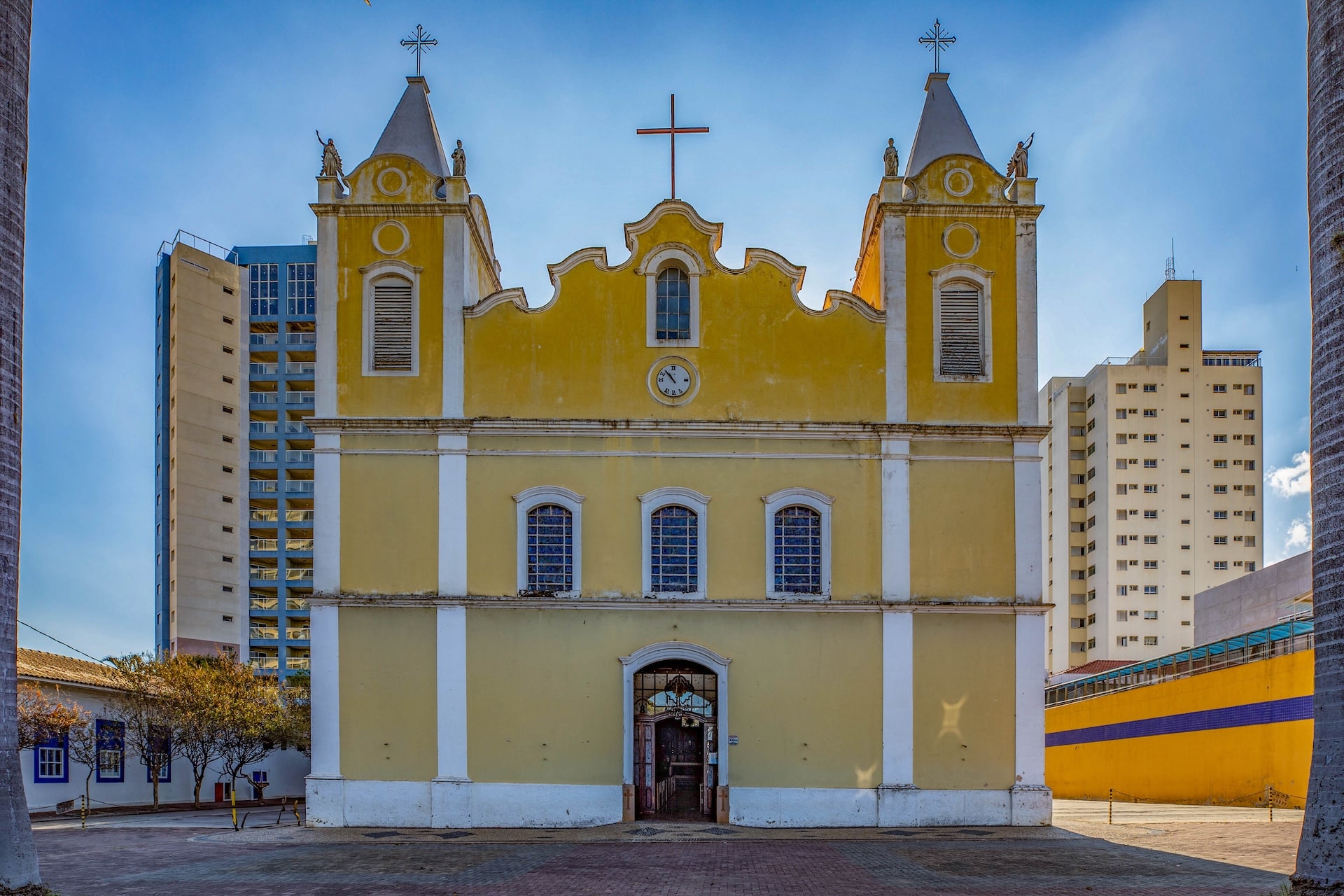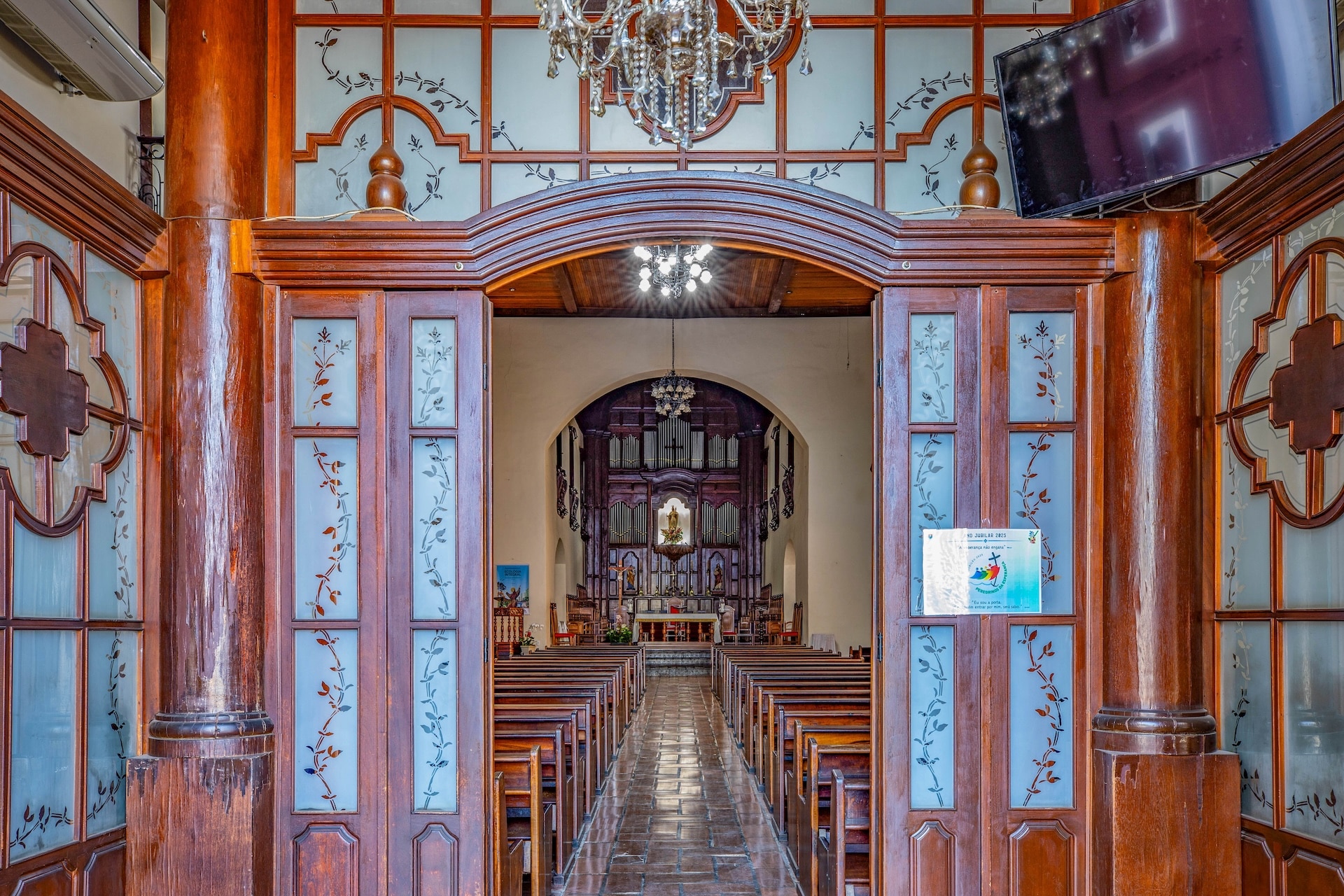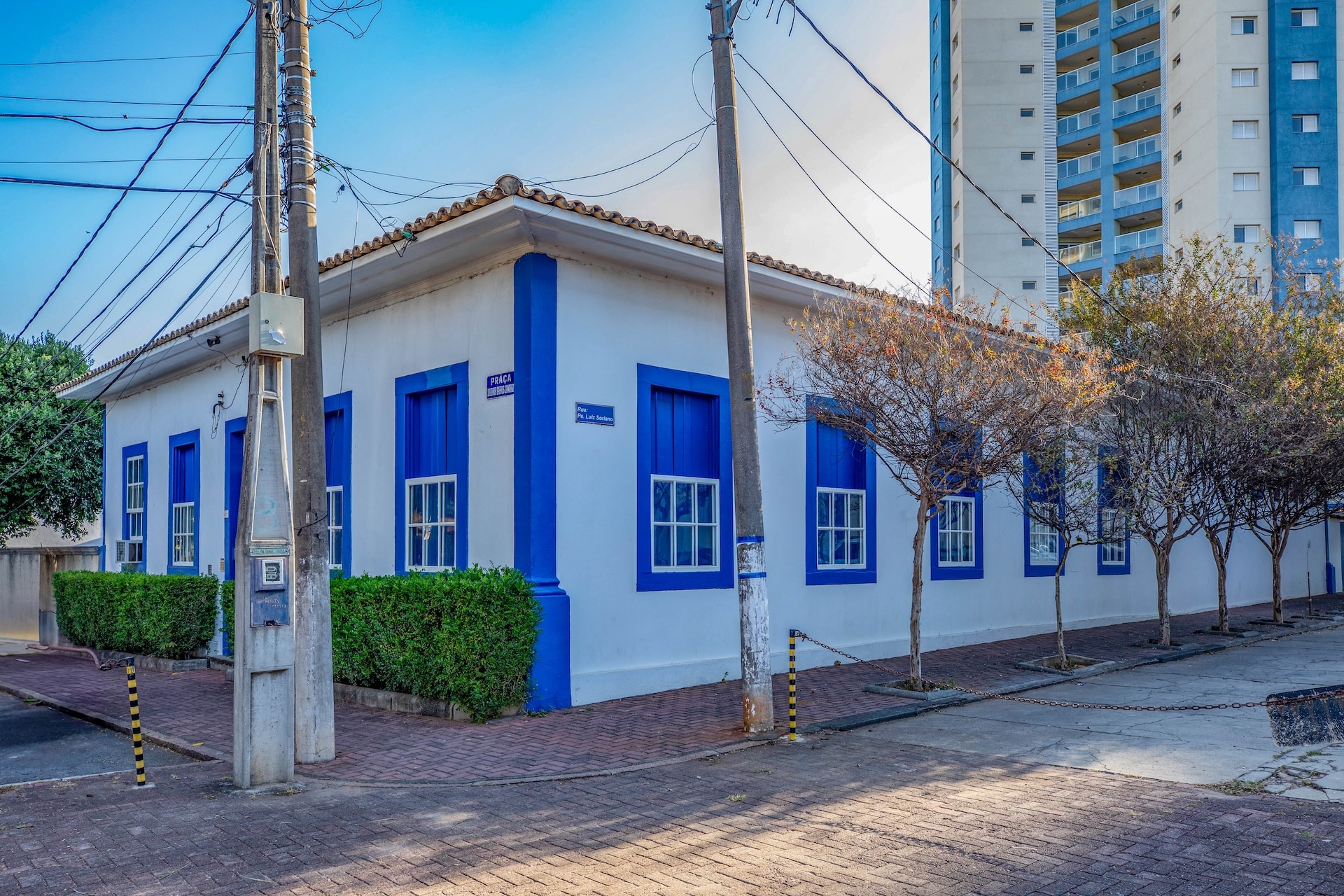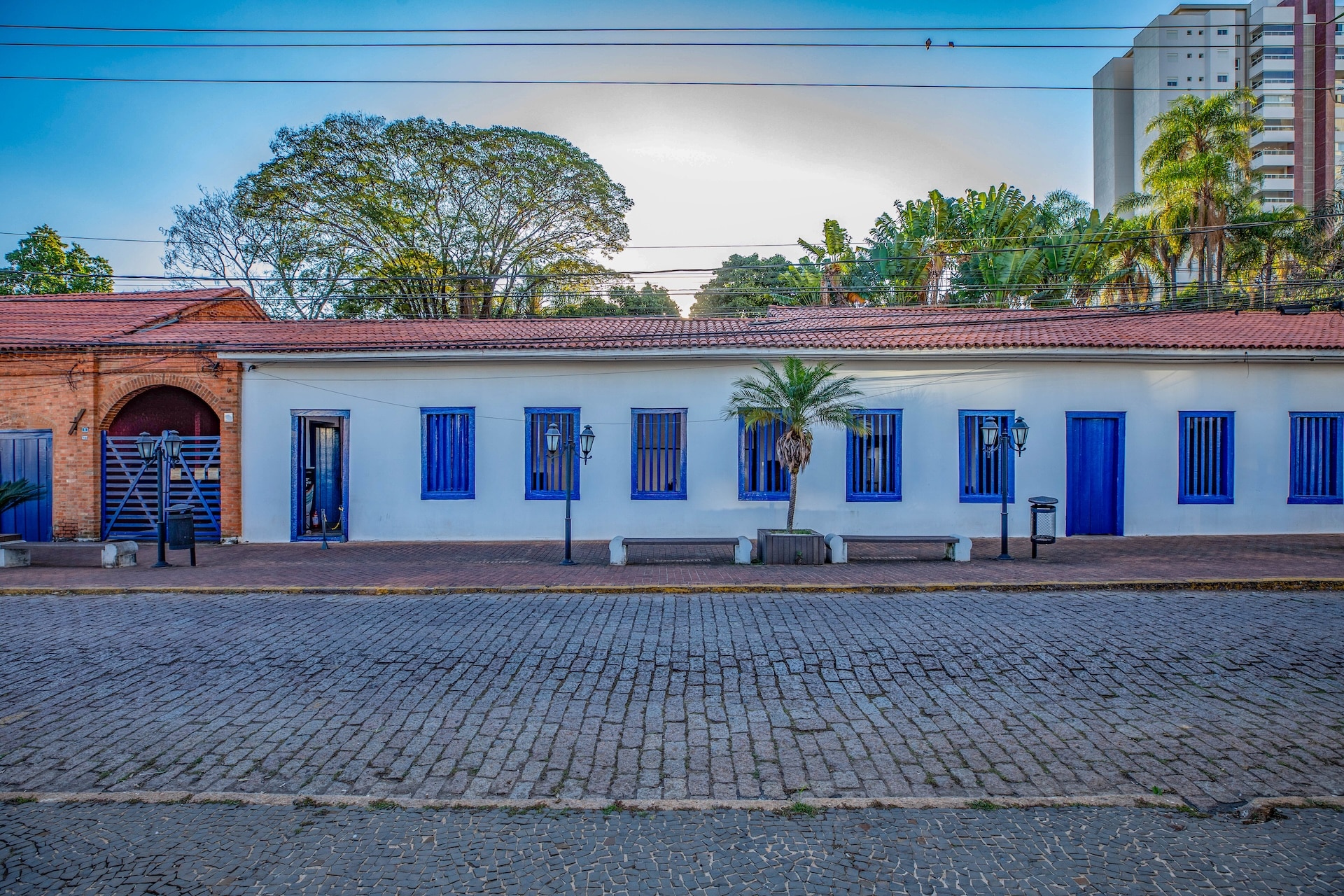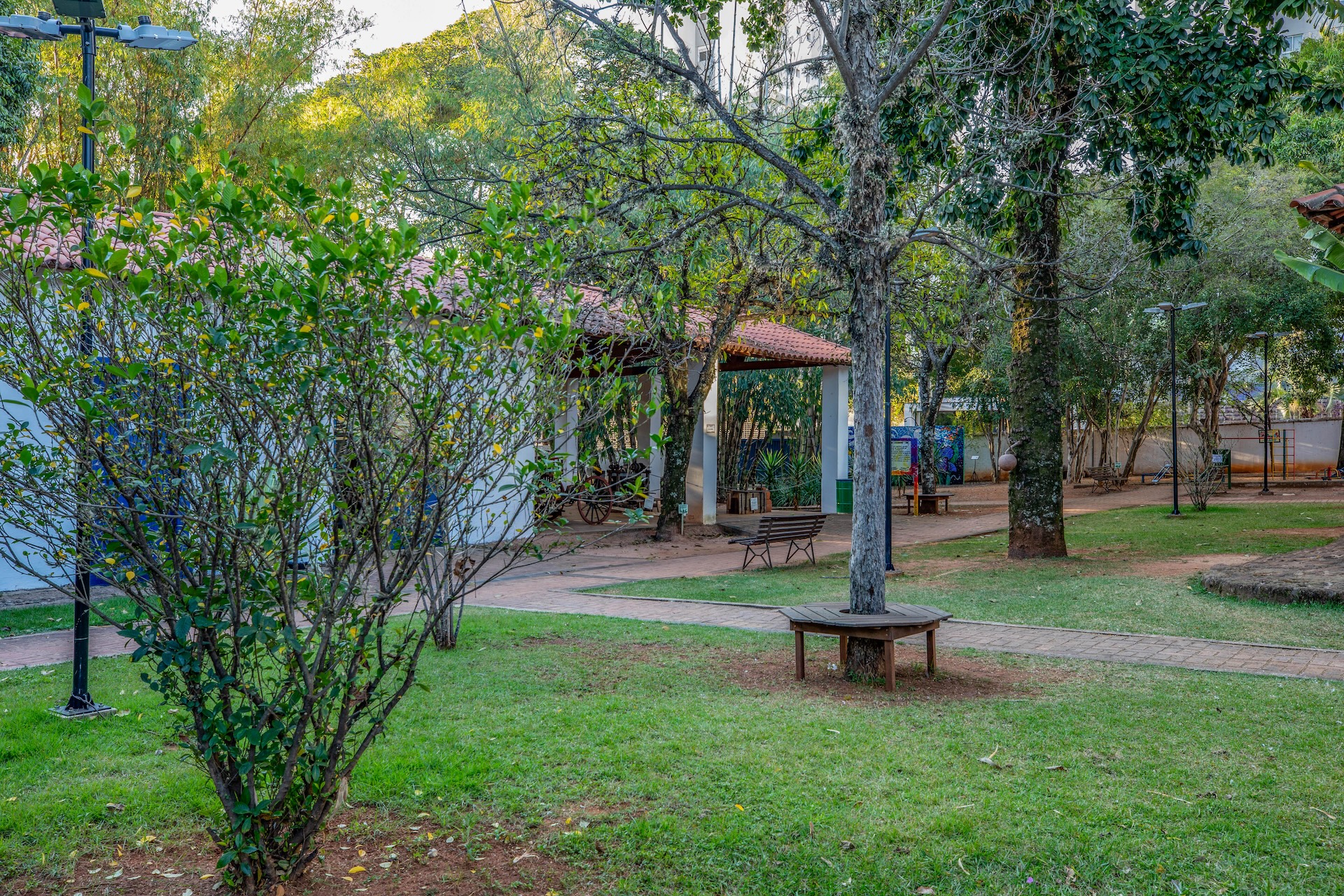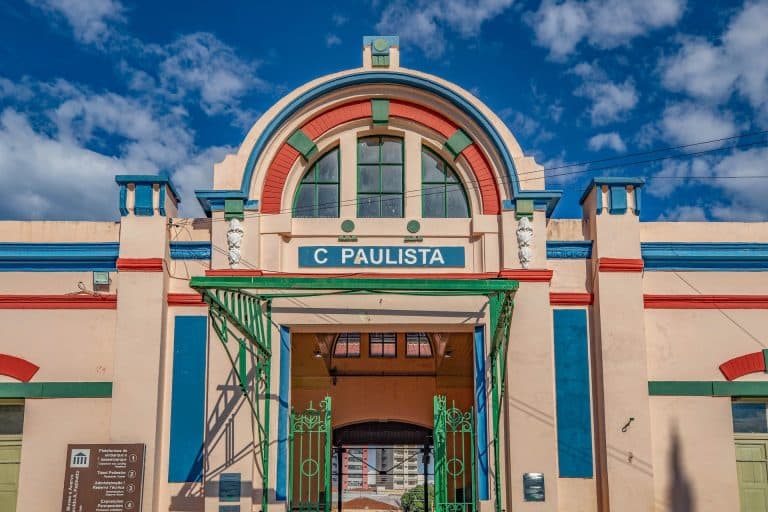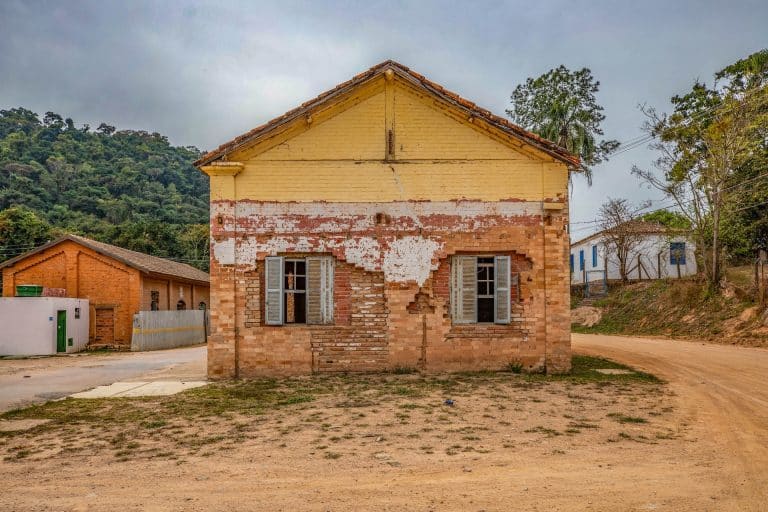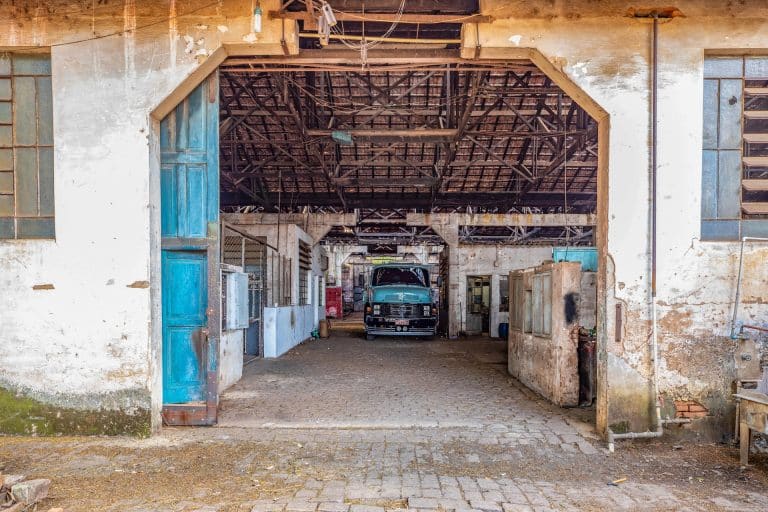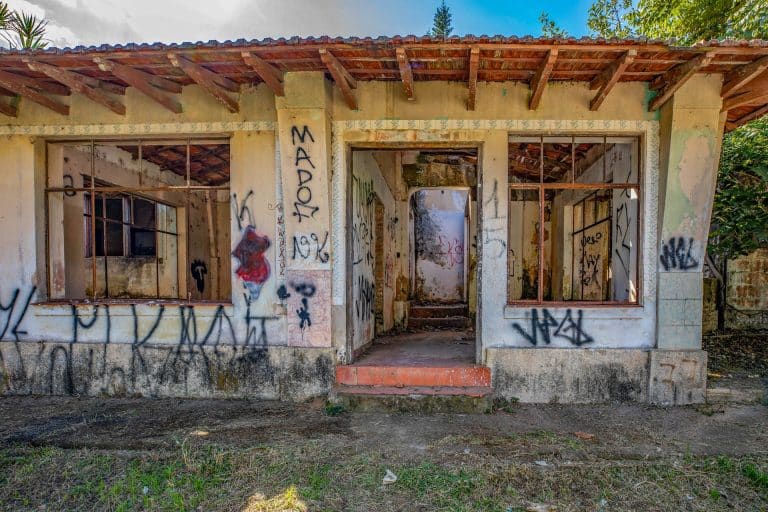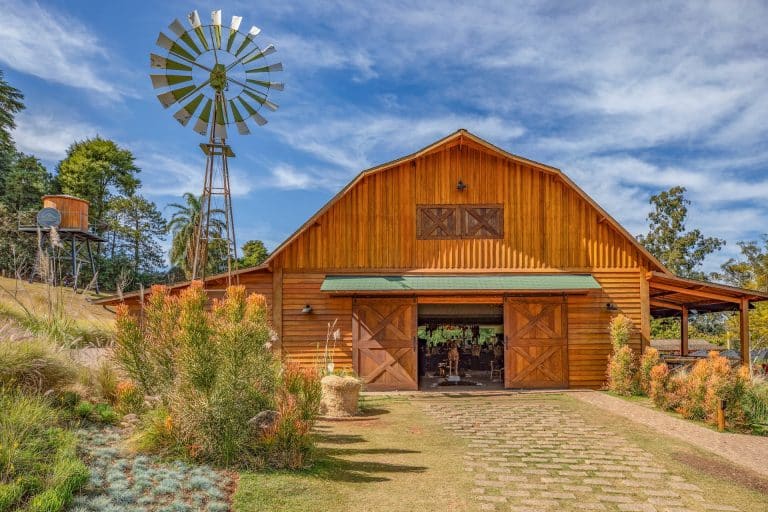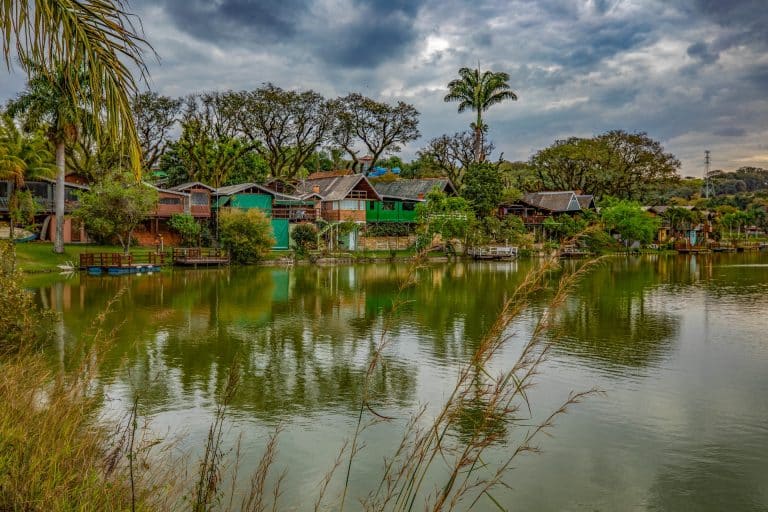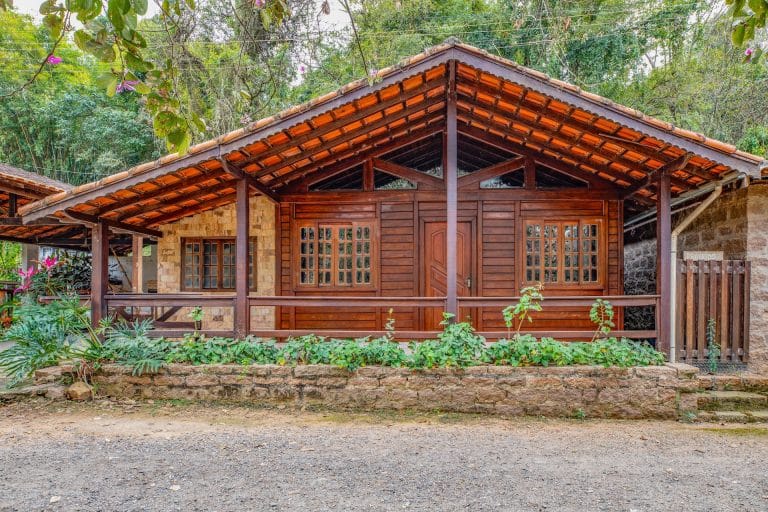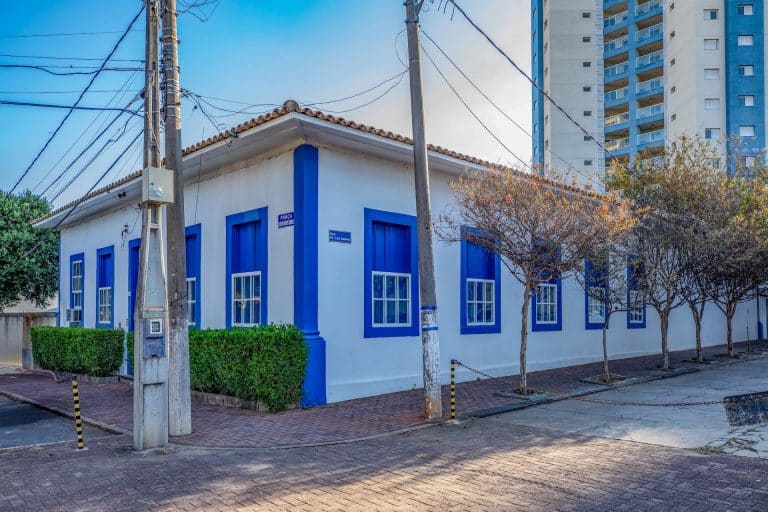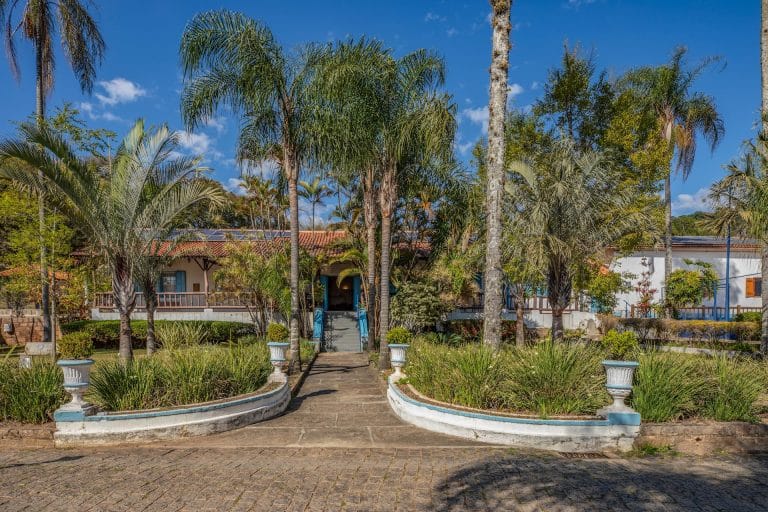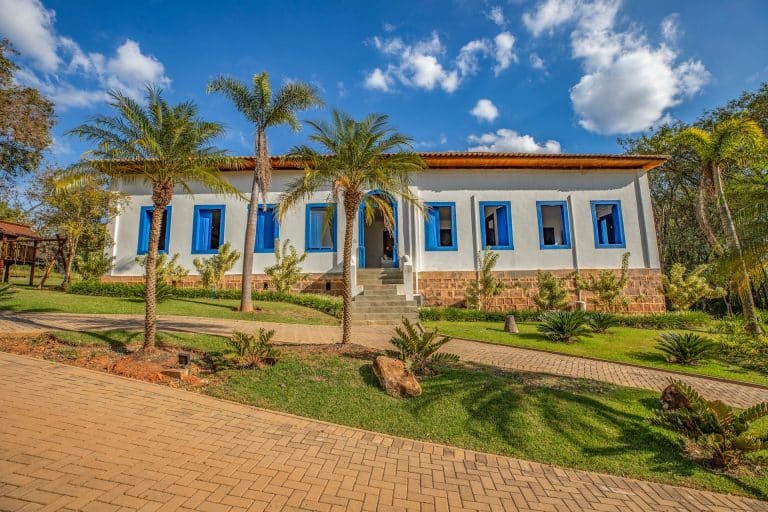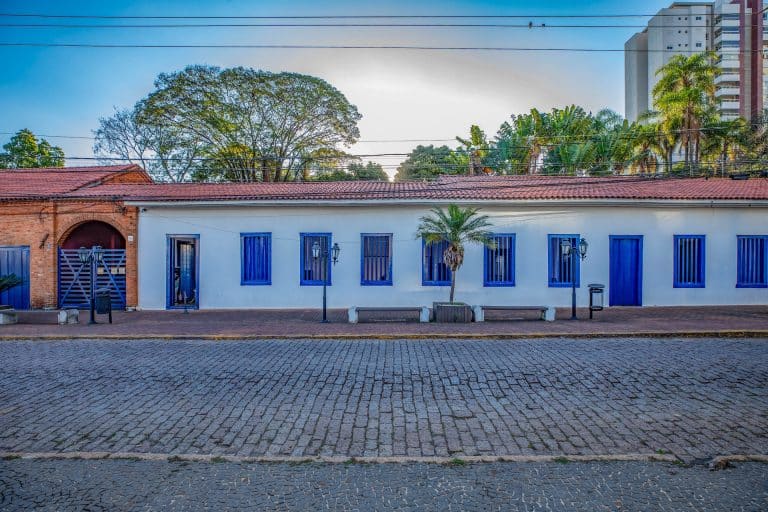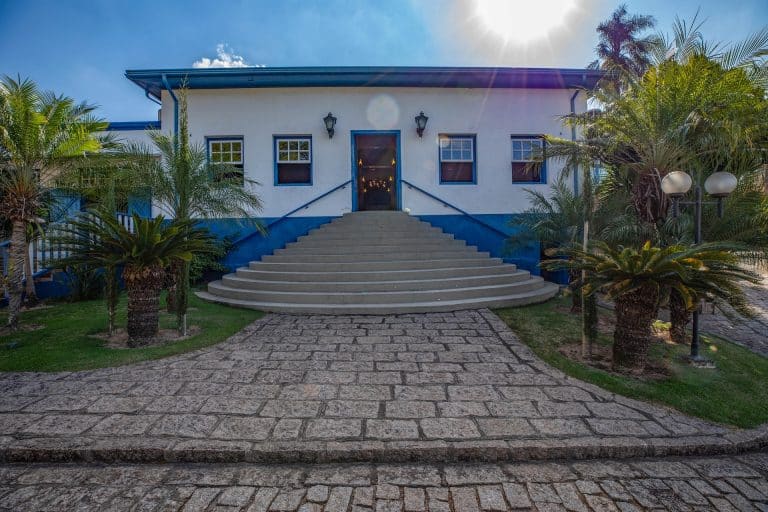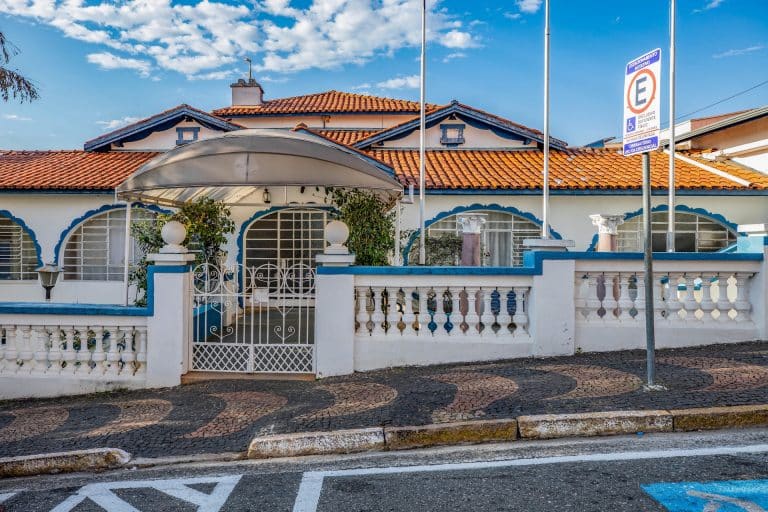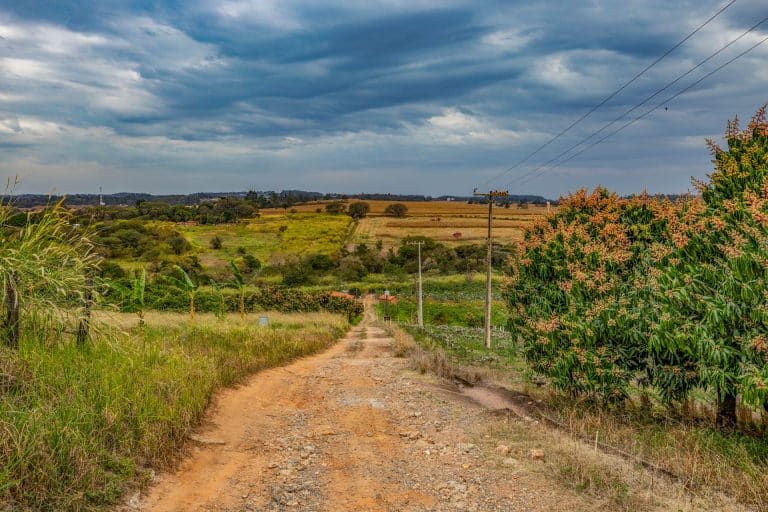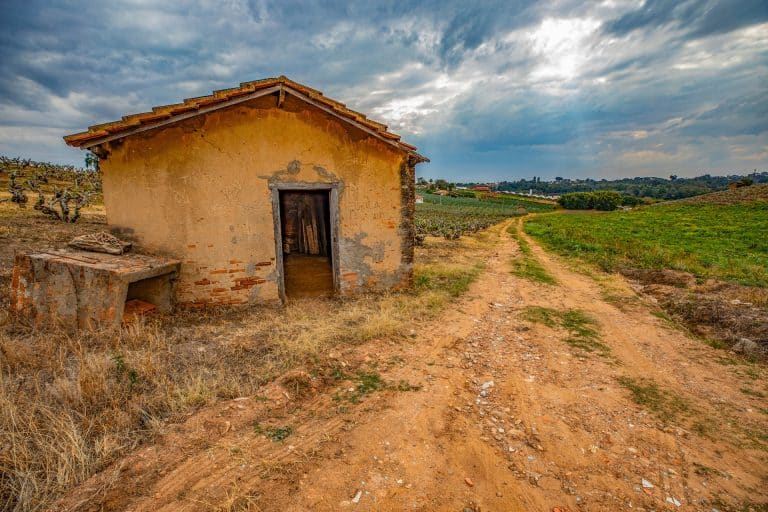Initially a stopover for travelers and traders on their way to the mining villages of southern Brazil, Indaiatuba officially became a city in 1830, driven by the expanding sugar industry. Located by the banks of the Jundiaí-Mirim River, the city has preserved historic sites dating back centuries, offering unique and distinctive settings for film productions.
In the 19th century, coffee became the region’s chief economic activity, prompting the construction of major landmarks and historically important buildings, including the Casarão Pau Preto—the headquarters of the former Fazenda Pau Preto—which features distinctive blue-and-white façades. The city’s industrial district was modeled after English factories, featuring exposed-brick buildings and steam-powered machinery for processing coffee beans.
As rural production expanded, the region saw an influx of European immigrants, who introduced their customs and traditions. The German Colony of Bairro Friburgo, founded in 1879 by settlers from Schleswig-Holstein, still preserves its Lutheran church and community hall, in which banners bearing the coats of arms of the founding families serve as symbols of their enduring history.
In 1888, families from central Switzerland—including the Ambiel, Amstalden, and Bannwart families—founded the Helvetic Colony to cultivate coffee and preserve historic buildings. Their influence is evident in the design of the Igreja Nossa Senhora de Lourdes church, which blends neoclassical, Renaissance, and baroque architecture. These historical buildings, along with the colonial manor houses, provide a rich historical backdrop for filming.
Traveling along the rural roads reveals a range of unique locations, including Fazenda Pimenta, founded in 1949 by Santoro Mirone, a former Italian navy officer. The estate has preserved sections of the Fábrica Aburá, a solid-brick factory that once produced peanut oil. Adjoining it is the Roman-style Chapel of São José, built using traditional methods and painted in a faded yellow hue.
Fazenda Vale Verde, the ancestral home of Brazilian artist Tarsila do Amaral, retains its 19th-century manor houses and original wooden furnishings. Its grounds, featuring gardens, sculptures, and scenic interconnecting pathways, offer a variety of unique settings for cinematic exploration.
The surrounding region also offers a variety of additional filming locations, such as the city of Vinhedo, founded in 1949. Vinhedo’s first economic growth came in the late 19th century from coffee production. European immigrants, particularly Italians, later introduced grape cultivation and winemaking, establishing the city as a major viticulture center.
Among the area’s architectural highlights is the Castelo dos Vinhais, a unique structure built in the 1980s by a descendant of Portuguese immigrants. Inspired by medieval European castles and surrounded by vineyards, it provides a striking, cinematic backdrop for audiovisual productions. Another remarkable location is the Mosteiro de São Bento on Fazenda Bela Vista. Founded by Benedictine monks in 1968, its brutalist architecture—featuring simple geometric forms and exposed concrete—offers a distinctive and unconventional setting for filming.
Known as the “capital of the purple fig,” Valinhos developed around the cultivation of figs, grapes, and strawberries. Officially established as a municipality in 1948, the city later became a hub for industrial and commercial activities while still preserving its period architecture and rural character.
Located in the Serra dos Cocais mountain range, the Chão de Pedra Winery is a family-run estate that began an extensive reforesting project in 1996. In addition to typical regional stone flooring, the property also features vineyards on its steep hillsides and facilities for wine production and storage.
Together, Indaiatuba and the surrounding region offer a wide range of urban and rural settings, featuring historic, cultural, and natural locations. This variety of locations within a single territory allows productions to streamline logistics while providing a wide array of visual options for filming.
Key information about Indaiatuba
Attractions
Estimated population:
Climate:
Safety and control
Public and Private Agencies and Entities
Useful Contacts
Infrastructure
Telecommunications Operators:
- Claro
- Tim
- Vivo
Banking Networks:
- Banco do Brasil
- Bradesco
- Caixa Econômica
- Caixa Eletrônico 24h
- Itaú
- Santander
Services - accommodation and food
Safety and control
Services - Technical and Logistical Support
Equipment companies for film productions
- Agencies for extras and casting
- Filming equipment companies
- Lighting equipment companies
- Sound equipment companies
- Video production companies
Spaces for logistical support:
- Open areas for the assembly of temporary structures
- Auditoriums
- Cultural centers
- Industrial warehouses
General Services
General services available
- Post offices
- Car rental
- Van rental
- Newsstands
- Registry offices
- Exchange bureaus
- Shopping centers
- Pharmacies
- Hospitals
- Local press
- Bookstores
- Markets
- Banking Networks
- Shopping malls
Audiovisual industry professionals
- Assistant directors
- Production assistants
- Actors
- Sound editors
- Gaffer
- Recording studios
- Costume designers
- Makeup artists
- Key grips
- Editors
- Camera operators
- Audiovisual producers
- Sound effects artists
- Best boys
- Sound technicians

